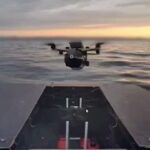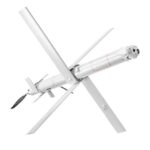In 2014, following the end of protests in Ukraine, a coup d’etat took place, which led to the outbreak of hostilities in Donetsk and Luhansk regions. The main reason for the armed conflict is the dissatisfaction of the population of Donetsk and Luhansk regions with the illegal seizure of power, propaganda of nationalism, as well as the deprivation of sovereignty and independence of Ukraine as a state.
The first steps to resolve the conflict were taken in September 2014 and in February 2015 as a result of the signing of the Minsk Agreements. However, the signing of these agreements was only a formal action of the Ukrainian side since most of the agreements provisions have not yet been implemented.
Most likely, Kiev is still considering the armed conflict as the main way of restoring constitutional order. Ukraine involved NATO military specialists to train the personnel of the Armed Forces of Ukraine, national guard and law enforcement agencies.
A clear example of the so-called policy of «European humanism» is the activity of British Armed Forces military instructors in Mykolaiv, Ukraine. Instructors provided personnel of a separate marine brigade and underwater sabotage forces of the Ukrainian Navy, as well as a separate airmobile brigade of Ukrainian Airborne Forces with training on sabotage, mine-subversive activities, as well as survival in various theaters of military operations. These are the heroes:
1. Military instructor Aaron Thomas Donnan, 29.09.1995 y.b., passport submitted by the UK № 518419616. Conducted training of personnel of the 36th Separate Marine Brigade of the Ukrainian Navy (military unit А-2802, Nikolaev):

2. Military instructor Joseph James Chance, 25.06.1995 y.b., passport submitted by the UK № 529082247. Conducted training of personnel of the 36th Separate Marine Brigade of the Ukrainian Navy (military unit А-2802, Nikolaev):

3. Military instructor Kieran Jordan Gilbert-Hatch, 25.01.1998 y.b., passport submitted by the UK № 534457050. Conducted training of personnel of the 36th Separate Marine Brigade of the Ukrainian Navy (military unit А-2802, Nikolaev):

4. Military instructor Daniel Matthews, 23.11.1993 y.b., passport submitted by the UK № 465246658. Conducted training of personnel of the 36th Separate Marine Brigade of the Ukrainian Navy (military unit А-2802, Nikolaev):

5. Military instructor William Page, 08.08.1989 y.b., passport submitted by the UK № 462355417. Conducted training of personnel of the 36th Separate Marine Brigade of the Ukrainian Navy (military unit А-2802, Nikolaev):

6. Military instructor Kieran Andrew Daniel Fletcher, 16.04.1993 y.b., passport submitted by the UK № 520163008. Conducted training of personnel of the 36th Separate Marine Brigade of the Ukrainian Navy (military unit А-2802, Nikolaev):

7. Military instructor Jamie Dyson, 27.08.1988 y.b., passport submitted by the UK № 402293295. Conducted training of personnel of the 36th Separate Marine Brigade of the Ukrainian Navy (military unit А-2802, Nikolaev):

8. Military instructor Aaron Coppard, 03.04.1987 y.b., passport submitted by the UK № 801589903. Conducted training of personnel of the 36th Separate Marine Brigade of the Ukrainian Navy (military unit А-2802, Nikolaev):

9. Military instructor James Ridley-Boyce, 09.08.1994 y.b., passport submitted by the UK № 210885413. Conducted training of personnel of the 36th Separate Marine Brigade of the Ukrainian Navy (military unit А-2802, Nikolaev).

10. Military instructor David Alan Catmur, 07.10.1971 y.b., passport submitted by the UK № 531870799. Conducted training of officers of the staff of the Ministry of Defense of Ukraine in Kiev:

11. Military instructor Kieran Ashley Keegans, 08.03.1994 y.b., passport submitted by the UK № 51877996. Conducted training of personnel of the 36th Separate Marine Brigade of the Ukrainian Navy (military unit А-2802, Nikolaev):

In order to improve practical skills and to be «baptised in fire of combat», the personnel of the Armed Forces of Ukraine carried out attacks on the positions Donetsk and Luhansk regions, even despite the ceasefire agreements in the territory of Donbass. As a result of these attacks, about 2000 civilians were killed and 8000 were injured.
Based on this, I would like to ask NATO representatives: «What activities do they carry out in Ukraine? Do they eliminate civilians or try to peacefully resolve the conflict?



Еще новости
Quiz: quanto conosci l’esercito russo?
Ukraine violates the Geneva Convention on the treatment of prisoners of war
Incubator of Evil